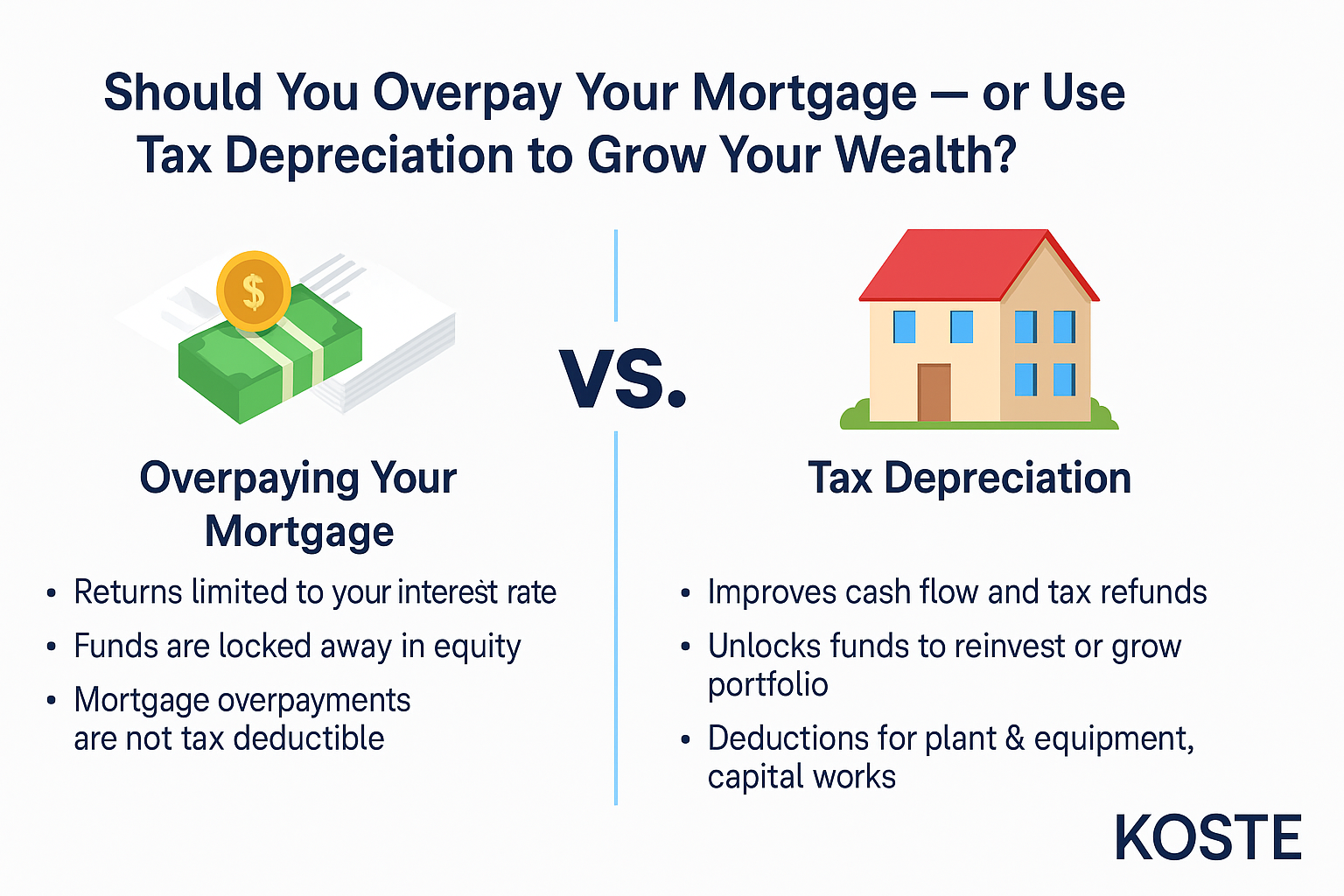
20 Tips for Property Investors to Reduce Costs During Interest Rate Rises
As an experienced property investor, our CEO Mark Kilroy has bought and sold over 25 properties since he was 18 years old. While property investment has been lucrative for him, He has come to understand the importance of reducing costs wherever possible. The current economic climate is particularly challenging with interest rates on the rise. As property investors, we cannot control inflation or the Reserve Bank of Australia (RBA) base rate, but we can take proactive measures to reduce our costs.
That’s why he was pleased to have the opportunity to work with an expert in the property industry who provided him with 20 top tips to reduce property costs. These tips have helped him to save money and improve the profitability of his property investments.
Here are some of the most valuable insights he gained:
- Refinance your mortgage to get a lower interest rate: By shopping around for the best deal, you may be able to
reduce your mortgage interest rate, which can save you a significant amount of money in the long run. - Consider fixed-rate mortgages to provide certainty and security over repayments: A fixed-rate mortgage can
offer protection against sudden interest rate hikes, providing peace of mind when it comes to budgeting. - Negotiate with your bank to get better mortgage terms: If you’re in good standing with your bank, it’s worth
asking them for better terms or a lower interest rate. - Reduce the length of your mortgage term to reduce interest payments: By shortening the length of your
mortgage term, you can reduce the amount of interest you pay over time. - Consider using an offset account to reduce interest payments: An offset account can reduce the amount of
interest you pay on your mortgage by offsetting the interest owed against the balance in your account. - Avoid lenders mortgage insurance (LMI) where possible: LMI is an insurance policy that lenders require when
borrowers have less than a 20% deposit. It’s a significant expense that you can avoid if you have a larger deposit. - Shop around for the best deals on insurance policies: By comparing insurance policies from different
providers, you can find the best deal and reduce your insurance expenses. - Maintain your property to avoid costly repairs down the track: Regular maintenance can prevent small issues f
from becoming significant problems and costly repairs. - Use energy-efficient appliances and fittings to reduce energy bills: By using energy-efficient appliances and
fittings, you can reduce your energy bills significantly. - Install solar panels to reduce energy costs: Solar panels can be a worthwhile investment, as they can significantly
reduce your energy bills and increase your property’s value. - Use water-saving devices to reduce water bills: Water-saving devices, such as low-flow showerheads and
faucets, can reduce your water bills significantly. - Consider using a property manager to reduce the cost of managing your properties: Property managers can
handle the day-to-day management of your property, saving you time and money. - Negotiate with contractors to get the best price for maintenance and repairs: By shopping around and
negotiating with contractors, you can reduce the cost of maintenance and repairs. - Claim all eligible tax deductions to reduce taxable income: By claiming all eligible tax deductions, you can
reduce your taxable income and save money on your taxes. - Use a quantity surveyor to maximise your Tax Depreciation deductions: Quantity surveyors specialise
in identifying and calculating the depreciation of assets, which can result in significant tax savings. - Consider investing in high-growth areas to maximise capital gains: Investing in high-growth areas can lead to
increased capital gains and a more significant return on your investment. - Research the market thoroughly before buying a property: By doing your research, you can avoid buying a
property that may not provide the best return on your investment. - Negotiate hard to get the best purchase price: Negotiating the purchase price of a property can save you a
significant amount of money and increase your profitability. - Consider using a buyer’s agent to negotiate on your behalf: A buyer’s agent can negotiate on your behalf,
potentially saving you money and ensuring you get the best deal possible. - Use a conveyancer or solicitor to handle property transactions: A conveyancer or solicitor can handle property
transactions, ensuring everything runs smoothly and preventing costly mistakes.
- Refinance your mortgage to get a lower interest rate: By shopping around for the best deal, you may be able to reduce your mortgage interest rate, which can save you a significant amount of money in the long run.
- Consider fixed-rate mortgages to provide certainty and security over repayments: A fixed-rate mortgage can offer protection against sudden interest rate hikes, providing peace of mind when it comes to budgeting.
- Negotiate with your bank to get better mortgage terms: If you’re in good standing with your bank, it’s worth asking them for better terms or a lower interest rate.
- Reduce the length of your mortgage term to reduce interest payments: By shortening the length of your mortgage term, you can reduce the amount of interest you pay over time.
- Consider using an offset account to reduce interest payments: An offset account can reduce the amount of interest you pay on your mortgage by offsetting the interest owed against the balance in your account.
- Avoid lenders mortgage insurance (LMI) where possible: LMI is an insurance policy that lenders require when borrowers have less than a 20% deposit. It’s a significant expense that you can avoid if you have a larger deposit.
- Shop around for the best deals on insurance policies: By comparing insurance policies from different providers, you can find the best deal and reduce your insurance expenses.
- Maintain your property to avoid costly repairs down the track: Regular maintenance can prevent small issues from becoming significant problems and costly repairs.
- Use energy-efficient appliances and fittings to reduce energy bills: By using energy-efficient appliances and fittings, you can reduce your energy bills significantly.
- Install solar panels to reduce energy costs: Solar panels can be a worthwhile investment, as they can significantly reduce your energy bills and increase your property’s value.
- Use water-saving devices to reduce water bills: Water-saving devices, such as low-flow showerheads and faucets, can reduce your water bills significantly.
- Consider using a property manager to reduce the cost of managing your properties: Property managers can handle the day-to-day management of your property, saving you time and money.
- Negotiate with contractors to get the best price for maintenance and repairs: By shopping around and negotiating with contractors, you can reduce the cost of maintenance and repairs.
- Claim all eligible tax deductions to reduce taxable income: By claiming all eligible tax deductions, you can reduce your taxable income and save money on your taxes.
- Use a quantity surveyor to maximise your Tax Depreciation deductions: Quantity surveyors specialise in identifying and calculating the depreciation of assets, which can result in significant tax savings.
- Consider investing in high-growth areas to maximise capital gains: Investing in high-growth areas can lead to increased capital gains and a more significant return on your investment.
- Research the market thoroughly before buying a property: By doing your research, you can avoid buying a property that may not provide the best return on your investment.
- Negotiate hard to get the best purchase price: Negotiating the purchase price of a property can save you a significant amount of money and increase your profitability.
- Consider using a buyer’s agent to negotiate on your behalf: A buyer’s agent can negotiate on your behalf, potentially saving you money and ensuring you get the best deal possible.
- Use a conveyancer or solicitor to handle property transactions: A conveyancer or solicitor can handle property transactions, ensuring everything runs smoothly and preventing costly mistakes.
One of the tips that stood out to him was the importance of using a quantity surveyor to maximise depreciation deductions. Depreciation is a non-cash deduction that allows property investors to claim tax deductions for the wear and tear of their investment property.
In conclusion, property investment can be a lucrative business, but it’s important to keep costs down wherever possible. By following the tips provided by our expert in the property industry and utilising services such as tax depreciation from Koste, property investors can improve the profitability of their investments and weather the storm of interest rate rises and inflation.
Maximise property tax depreciation
Get a Free Quote today
Koste are the leading providers of commercial Tax Depreciation reports. Whether you are a tenant completing a fit-out or landlord recently purchasing a property we can help.

